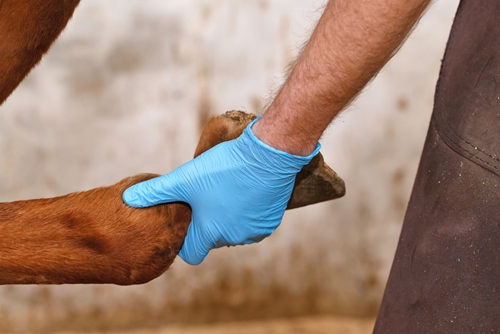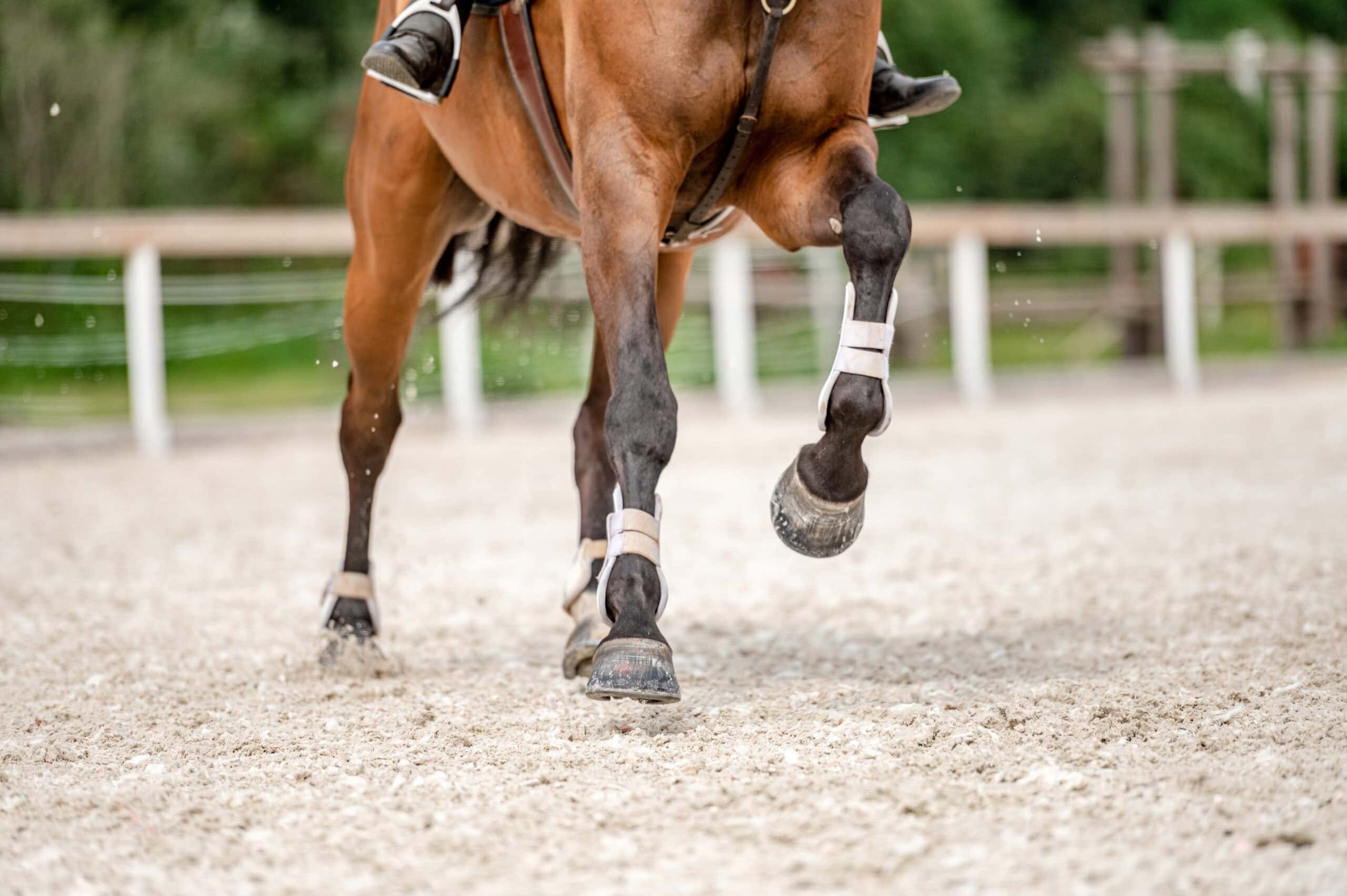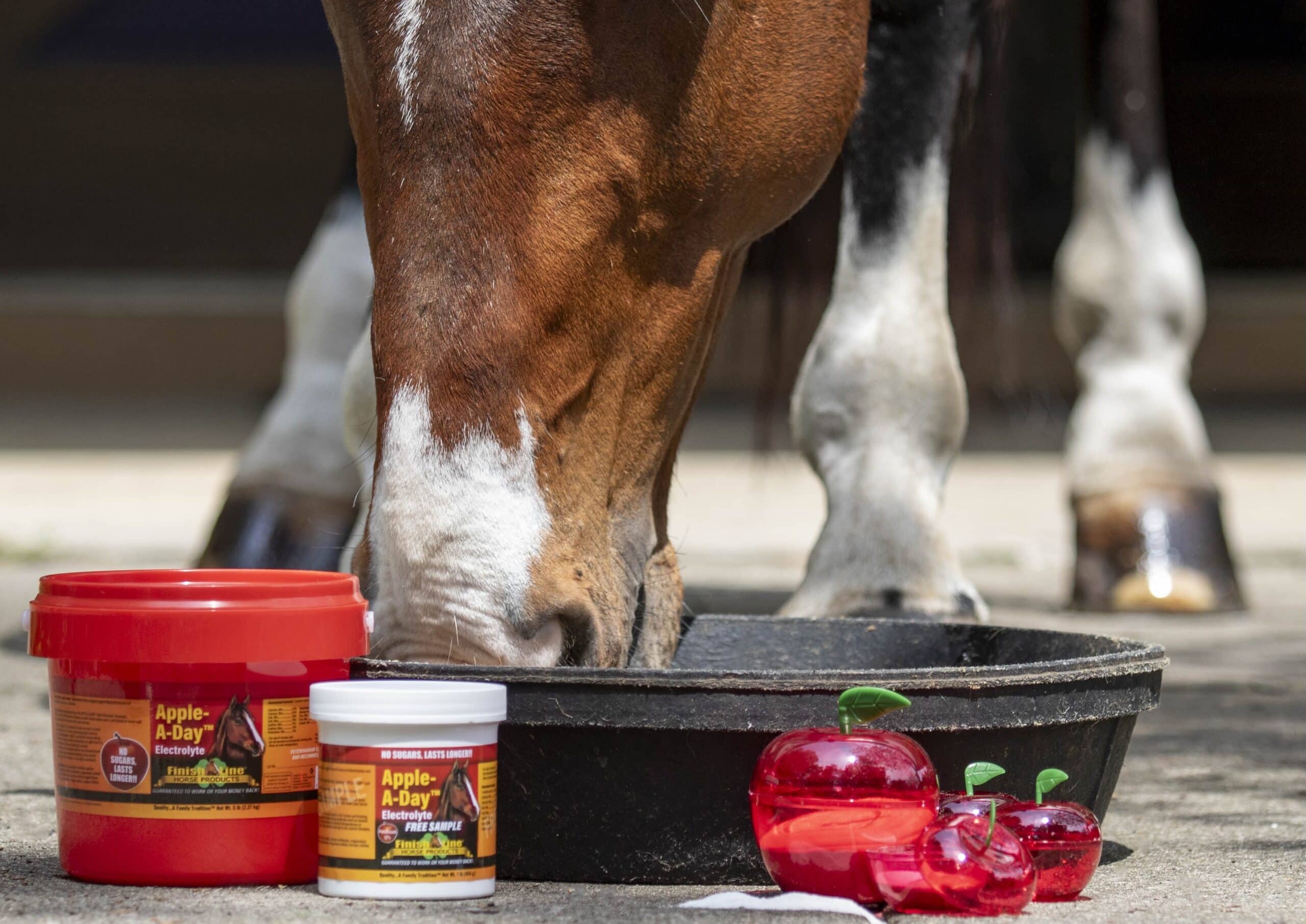Soreness can greatly disrupt a horse’s life. This discomfort can interrupt everything from walking about in a pasture to racing in major competitions. It’s not fun to see your animals in pain, but it can be easy to spot and diagnose soreness as it occurs. Sometimes it’s a simple matter of overworked muscles and other instances require veterinary care. Read on to learn about diagnosing soreness in horses.
Areas for potential soreness
The withers are a part of the spinal column that support major ligaments in the neck and back. These bones are crucial in regular daily functioning as well as racing, jumping and other competitive events. Every time a horse takes a step or moves its head, it is using its withers. These bones can become sore due to a series of reasons like overuse, sleeping in an uncomfortable position or even travel.
The legs and feet are other crucial areas of a horse that may become sore and painful. Hoof problems such as thrush, infection or something stuck in the foot may make a horse sore and lead it to avoid movement. Leg soreness can be caused by training too hard, not drinking enough water, injuries or illness.
“Look for behavior changes or sensitivity as signs of soreness.”
Signs of soreness
Practical Horseman noted soreness may show in several ways, such as when a horse is sensitive to the touch and pulls back from your hand when you reach out. An animal may try to avoid being saddled or refuse to jump or trot. Odd behavior such as resisting work, pinned ears or excessive tail swishing may also be signs that your horse is sore. When you try to mount your horse, watch how it reacts. If the animal humps or bucks, it’s possible its back, withers, feet, neck or legs are sore.
Preventing soreness
Some soreness is caused by muscle cramping due to lack of electrolytes and proper hydration. Apple-A-Day™ can help replace electrolytes by aiding in appetite and water consumption. It contains no artificial colors, sugars or fillers and is a natural way to replenish salt, potassium, calcium, magnesium, manganese, zinc, copper, iron and cobalt in your horse’s daily diet. Always have clean, fresh water on hand during training, boarding and competitions so your horse can hydrate as needed. Also help it out on hot days by cooling the animal off with baths and access to fans.
Treating soreness
If your horse is showing signs of soreness, consider taking it to a veterinarian for a proper diagnosis. You can check for signs of obvious injury or issues at home before seeking medical help, but if there is a chance of an underlying issue that you can’t handle solo, don’t hesitate to contact your vet. Simple overuse soreness may benefit from Kool-Out™ Poultice, a temporary relief aid that is smooth and creamy. It offers aid to horses who are stiff or sore from exercising too hard and can cool horse muscles as well as be used as hoof packing.











